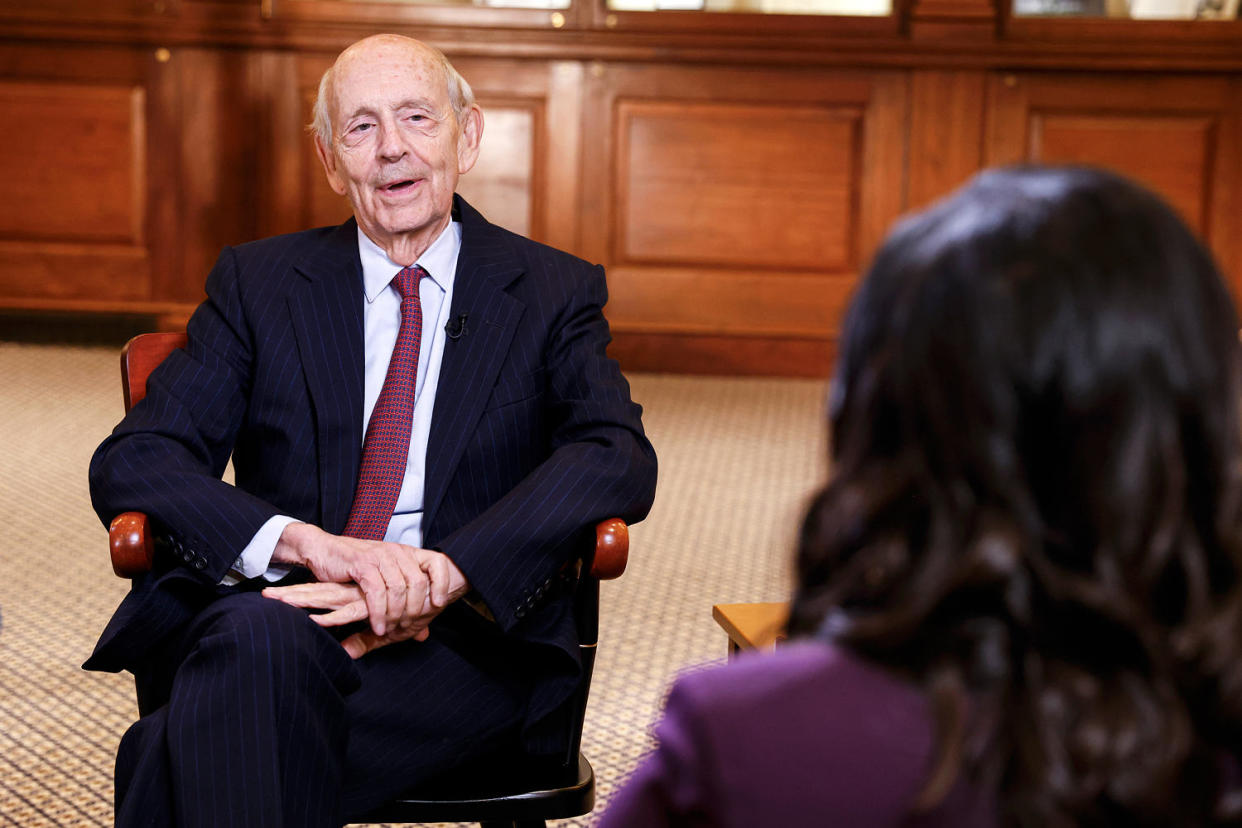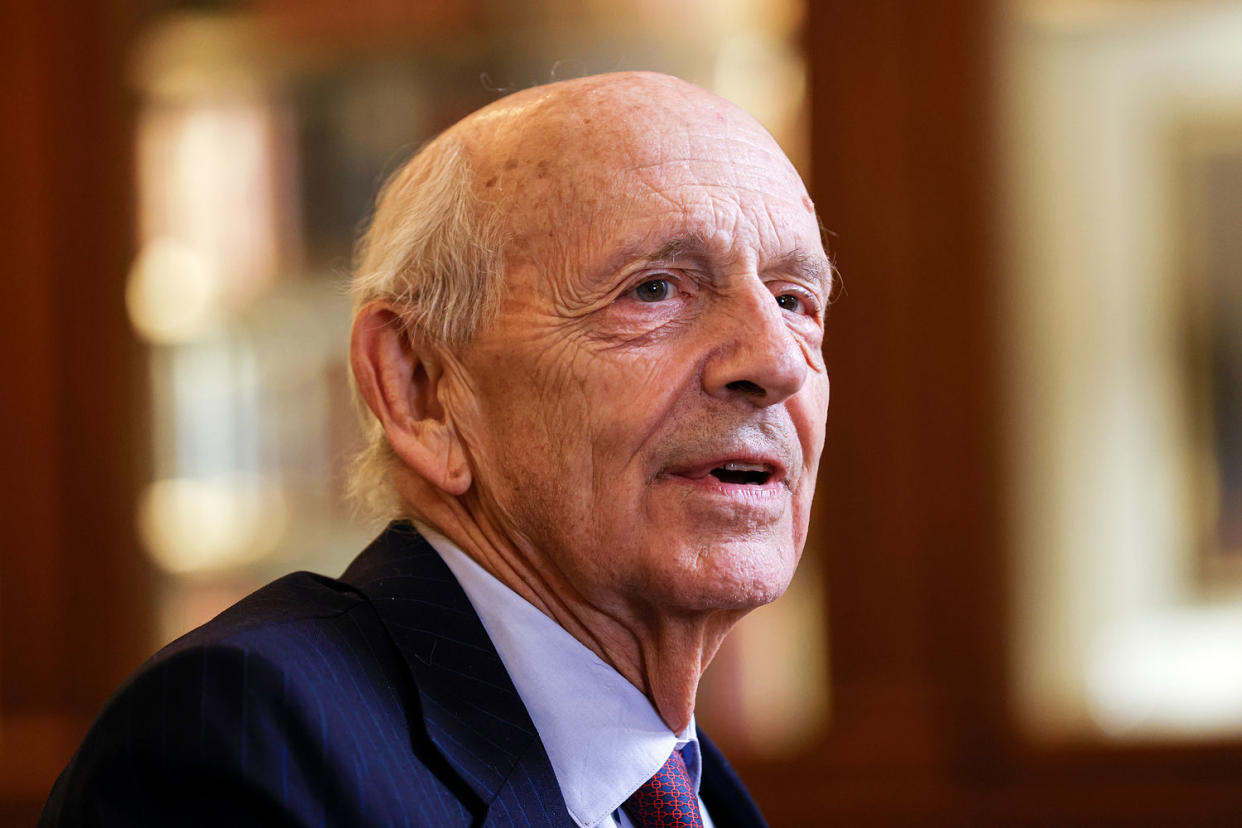Former Justice Stephen Breyer says he'd be amazed if the source of the Dobbs leak were a judge
WASHINGTON — Former Supreme Court Justice Stephen Breyer said it’s “possible” the Supreme Court could one day overrule its 2022 decision in Dobbs v. Jackson Women’s Health, which itself overruled Roe v. Wade.
“But who knows?” added Breyer, speaking to moderator Kristen Welker on NBC News’ “Meet the Press.”
The former justice also spoke about the leak of the majority’s decision to overturn Roe, which preceded the official ruling by several weeks, calling it “unfortunate.”
Breyer said that he had a “theory” about the motivations of the leaker but declined to share any names, saying, “You have a theory. People have theories. I don’t mean to be coy, but I really don’t want to get into something.”
“I’d be amazed if it was a judge,” he added.

Breyer also sidestepped questions about several cases before the court this year involving former President Donald Trump.
Asked about one Trump case coming before the court regarding the former president’s claim that he should be immune from criminal prosecution for his efforts to overturn the 2020 election, Breyer said he wouldn’t comment and didn’t have enough information to form an opinion.
“My goodness, you can make mistakes just by saying what your initial opinion is. And my goodness, how often it really occurs,” Breyer said, adding: “I’m not just trying to get out of the question, because I can get out of the question by just saying I’m not going to answer the question.”

Still, Breyer, who was appointed by President Bill Clinton and served on the court from 1994 to 2022, isn’t a stranger to evaluating cases in the middle of presidential election years that could have major consequences for the outcome of the election.
In 2000, Breyer weighed the Bush v. Gore case and agreed with a 7-2 majority decision that the method for recounting ballots in Florida’s presidential election was unconstitutional. But he dissented from a majority opinion that found Florida didn’t have time to conduct a constitutional recount.
“They shouldn’t have taken [the case] up,” Breyer told Welker. “That’s what I thought about Bush v. Gore.”
He added, “I said, ‘They shouldn’t have taken up the opinion. And now, having taken it up, I think they should decide it the other way.’ That was my view, all right? But it was a view reached after a considerable amount of work.”
Breyer spoke to NBC News’ “Meet the Press” ahead of the release of his book “Reading the Constitution: Why I Chose Pragmatism, Not Textualism,” in which he lays out his case against an originalist interpretation of the Constitution.
“It’s very attractive,” Breyer said, describing textualism as “simple.”
“All you have to do is read this. Fabulous. You’ve got the answer. Yeah, just read it, and it’s simple,” he said.
“You say, ‘Sounds good, sounds good.’ But it doesn’t work very well, in my opinion. And that’s why I’ve spent a year and a half trying to explain why,” Breyer added.
